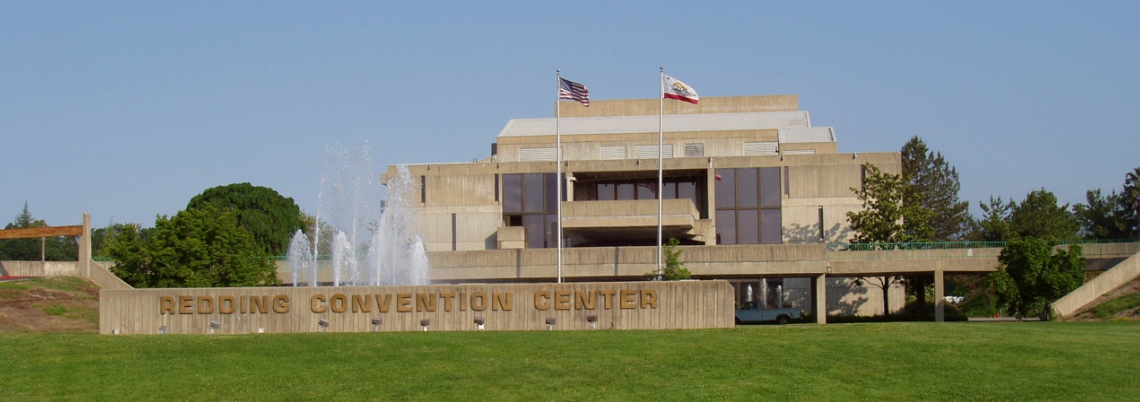Is it hard for you to believe God in an area that you’ve never personally seen Him come through in? I know some people who can’t wrap their minds around the fact that God is Healer because they’ve never seen Him heal before. I’m not saying this is intentional, and in fact many times our unbelief is passive. Do you really believe that God can miraculously pay off your debt? Do you believe He can (and wants to) show up in your workplace everyday? Or maybe you’re facing a giant that’s been taunting you for years and have no idea when or how your breakthrough will come?
Maybe you’re facing even bigger questions about God’s character… why do bad things happen to good people? Why doesn’t God stop terrorism attacks? If He knew we would sin in Eden, why did He even put the tree there?
It’s so important that we choose to trust God even when we don’t understand or when our experiences challenge what we know is true about Him. When your questions are bigger than what your experiences can explain, trusting God comes down to humility and faith.
REALITY IS BIGGER THAN OUR UNDERSTANDING
So what do we do with the things we don’t understand about God? Let’s take a look at some of our paradigms about the world first…
Can you imagine someone, 200 years ago, telling you that they could write the entire Bible on something the size of your fingernail and anyone could read it? You would probably think “No way! No one could write that tiny. That’s impossible.”
Of course, your paradigm would not include the microchip because the technology hadn’t been invented yet. Your understanding of the world would have lacked 160 years of discovery, invention, and innovation.
The point is that our understanding of the world around us, the world in us, and the world that awaits us, is limited by the time and space that we find ourselves in. The mistake we often make is that we reduce reality to our understanding, and reject anything that we can’t currently explain. This is not only true about the way we interpret the world, but it’s so often true about the way we interpret God. We have to realize that the truth is so much higher than simple facts.
IS HELL REAL?
This dynamic takes place in all walks of life but it is especially prevalent in science and theology.
A great example of this is our understanding of hell. Many times I have heard pastors say, “How could a loving God send people to hell?” Then they begin to reinterpret the Bible through their current understanding of the Love of God and the nature of Jesus. Usually this leads to concluding there can’t be a hell because the concept is incongruent with their current revelation of God.
EXPERIENCE ISN’T ALWAYS THE ANSWER
When we lean on our own understanding we reduce reality down to our own experience. We rationalize that if we can’t understand it, or we haven’t experienced it, then it can’t be true. This thinking is flawed from a number of perspectives:
1. It reduces truth down to your own experience and ignores the experiences of 7.2 billion other people on the planet. Ask yourself the question, “Is it possible that somebody else on the planet knows something or has experienced something before you have?”
2. It assumes that if God is doing something in the universe then He would certainly tell you or show you first. Of course God does speak to us, but it would be crazy to think He’d tell one person every single thing before He did it.
3. It lives under the pretense that everything that is true has already been discovered or revealed.It’s easy to see the flaws in this thinking in science alone, much less theology. Remember, it was God himself who said, “… that in the last days the knowledge of the glory of the Lord will cover the earth as the waters cover the sea.” (Habakkuk 2:14) In other words, God is going to reveal His secrets that are as broad as the sea and as deep as the ocean. The point is there’s still lots to learn!
4. There are many things in the world that you believe in and yet you don’t understand. Most of us drove a car before we understood how it operated. I don’t know anyone who refuses to use air conditioning because they don’t understand how it works.
Furthermore, most of us believe things like, the earth revolves around the sun, through blind faith. Somebody smarter than us discovered this to be true and we trust them therefore we believe them. A very small percentage of the earth’s population has actually gone through the trouble of verifying that this is actually a fact.
EVEN ATHEISTS HAVE FAITH!
In other words, ALL of us exercise faith every day; at least in other people. Atheists are not unbelievers! They’re just people who choose to put their faith in men instead of God. It actually takes more faith to not believe in God than it does to believe in Him.
Okay Kris, where are you going with all this? I’m simply trying to point out that everyone lives by faith. You just decide who to put faith in.
WHAT ARE YOU DOING WITH YOUR BIG QUESTIONS?
Personally, I have chosen to trust God. If He says that He loves the world so much that He gave His only son, and He goes on to say that there is a hell that some people will go to; then I believe Him because I trust Him.
I can’t reconcile hell and God’s love in my mind, nor can I explain how they coexist. However, God has 100 billion years more experience than I have, therefore it’s reasonable to believe that there are facts that have yet to be discovered by humanity, that God is privy to. This same principle applies to our other big questions about God, the world and faith.
So often what seems unreasonable in our own understanding, is simply an area in which, metaphorically speaking, we lack years of technology that will explain the gap in incongruence over time! So at the end of the day we have to choose faith in His character even when we don’t have answers to our big questions. Is this something you wrestle with? How do you find peace in the mystery? I’d love to hear your thoughts in the comments below!
THE BLOG
Discover more blog posts

As we approach a new year, many of us feel the stirring of purpose in our hearts, a calling to step into something bigger, bolder, and more impactful than ever before. But here’s a truth we often forget: often the closer you get to your God-given purpose, the louder the opposition becomes. Look at the story of Nehemiah. After years of broken walls and failed attempts, he finally received the favor, resources, and commission to rebuild Jerusalem’s walls. But the moment he stepped into action, the opposition intensified. Critics mocked, threats were made, and fear tried to paralyze him. In the face of opposition Nehemiah pressed on, and in just 52 days, what hadn’t been accomplished in decades was completed. I’d like to point out that opposition is not a sign that you’re on the wrong path. Often, it’s proof that you’re moving in the right direction. As you move into the new year, here are three practical ways that you can respond when the opposition grows louder: 1. Anchor Yourself in Your Identity Opposition often begins by attacking who you are. The serpent challenged Adam and Eve's identity, and Satan even said to Jesus, “If you are the Son of God…” Just as Nehemiah’s critics called him “feeble,” you may face lies that question your abilities, motives, or worth. Practical Step : Write down truths about who you are in Christ, your gifts, victories, and the promises God has spoken over your life. Keep them visible. When fear and doubt arise, remind yourself: you are a child of the King, chosen and equipped for this moment. 2. Stay Focused on the Work It’s easy to get distracted by critics, setbacks, or what others think. Nehemiah refused to “go down into the valley” of distraction or fear. He stayed focused on the wall he was building, not the voices trying to stop him. Paul felt this same pressure when he wrote, “I press on toward the goal to win the prize for which God has called me…” (Philippians 3:14) Practical Step: Create a “daily focus ritual.” Each morning, list the one thing you need to do that day that moves you closer to your purpose. Protect that time fiercely, and let criticism and noise slide off like water from a shield. 3. Recognize Opposition as Confirmation Opposition often signals that you’re stepping into something significant. Elijah faced Jezebel’s threats after his greatest victory, proof that he had truly impacted the kingdom. The louder the opposition, the more important your mission. Practical Step: When opposition rises, pause and ask: What is God confirming through this resistance? What part of my purpose is this proving? Let the resistance strengthen your resolve rather than weaken your faith. The new year is an invitation to step boldly into your calling. There will be voices trying to shake your confidence, doubts that try to paralyze your progress, and fears that want to hold you back. But remember: the louder the opposition, sometimes the closer you are to something God designed uniquely for you. Step forward with courage, focus, and clarity. Rebuild the walls that need rebuilding, stand firm in your identity, and embrace the opposition as a signal that you are on the right path. This year, don’t be surprised when the voices get louder, be encouraged. They are proof that your purpose is real, your mission is significant, and your victory is coming.

Redding Civic Auditorium Bethel Church has had a vision to help create one beautiful city for decades. Then, in late 2010, the Record Searchlight posted an article that the City of Redding was closing the Civic Auditorium due to the current economic crisis. The Civic cost the city 1.9 million dollars in 2010 to operate. Furthermore, the building seriously needed to be refurbished. The Bethel leadership team was deeply concerned about the economic effect the closing of the Civic would have on our already ailing city, not to mention the negative impact it would have on the social dynamic of our community. This ultimately led to a group of leaders forming a Non-religious, Public Benefit, Nonprofit Corporation called Advance Redding to operate the Civic Auditorium in October of 2011. Advance Redding entered into a contract that paid The City of Redding 360k annually in the form of a lease, for the privilege of operating the Civic Auditorium for the community. Advance Redding then entered into a contractual agreement with Bethel Church for $750K a year lease, to facilitate the Bethel School of Ministry, four days a week (Monday thru Thursday). Furthermore, Bethel Church donated nearly 2 million dollars to Advance Redding (AR) to help refurbish the Civic Auditorium. The Bethel Lease allowed AR to operate the Auditorium at break-even for 13 years. Advance Redding also was able to improve the business model, which dramatically increased the number of events facilitated by the Civic each year and greatly improved the entertainment experience. This resulted in millions more dollars of revenue flowing into our city every year! The Bethel School of Ministry no longer needed the Civic after the COVID-19 season, as the growth of the School is happening online. Therefore, BSSM moved out of the Civic in 2023, and didn’t renew its lease. This left Advance Redding with the challenge of operating the Civic without the monies that Bethel was paying in rent. The City graciously lowered the rent to 5k a month to help remedy the situation. But it hasn’t proved to be enough to solve the economic situation as the Civic is now operating at a significant loss. This inspired the Advance Redding board to request that the City release the funds set aside by the sale of land for the Sheraton and from our rents, for the maintenance of the Civic building but never utilized. This, we reasoned, would cover the losses for this year and part of the following year; which would keep the Civic open until a permanent solution could be implemented. The City Council agreed to this stop-gap solution, which we are grateful for. But moving forward, there needs to be a permanent, economic solution put in place to ensure that the Civic remains open and vibrant for the foreseeable future. The Advance Redding Board believes that the only viable option for the long-term solution for the Civic, (and for the economic health of our city), is the citizen-led Initiative for the Measure Adoption of a One Percent Sales Tax. Therefore, we have taken a leadership role in helping to pass the Initiative with our efforts. We also invested $49.5k of our Advance Redding budget to fund the effort to pass the tax, as without the Initiative, the Auditorium has no future! Closing the Civic Auditorium will have a massive negative impact on the economy of Shasta County as the events it facilitates bring millions of dollars into our community every year. It should also be noted that there are virtually no Civic Centers in the nation, that operate without government investment. The Redding Civic Auditorium has been the rare exception; and although the Civic opened 55 years ago, even it has only operated at no cost to the City for 14 years due to the generosity of Bethel Church. Sales Tax Solution The Sales Tax rate in Shasta County is 7.25% and yet the average sales tax in California is 8.85%. Nobody likes higher taxes, but we live in a state that has an extremely high cost of living. Much of this is because of the rising cost of insurance due to the increased amount of wild fires in our state, and the need to facilitate Fire Departments and fire mitigation to prevent another catastrophe in our communities. Furthermore, the rise of fentanyl in our county and increased drug addiction have also increased the need for police protection and crime prevention. This and many other factors have caused the cost of living in a beautiful city like Redding to drastically increase. Although the cost of operating a city has increased exponentially over the last three decades, Redding has not raised the sales tax since 1955. Yet over 61% of California Counties have already increased their sales tax to meet these rising costs. The other counties will likely follow as their communities face the challenge of trying to maintain the quality of life they’ve enjoyed, while having to meet the rising cost of the services that make this possible. The sales tax increase is the least intrusive way to continue to maintain and even improve the quality of life in our community. It raises millions of dollars to meet these costs. Here are some of the benefits Measure A would provide for the City of Redding to sustain the progress we have made over the last several years, specifically: Redding Police: Add 20 more officers (17% increase), which could result in a significant reduction in crime and in response time. Redding Fire: Add new fire station in the Enterprise area, reducing response time in that area from 8.5 minutes to 5 minutes and response times citywide by 1.5 minutes. Updated fire stations across the city. 9 new firefighters and a new battalion chief. Also, $750k more per year in wildfire prevention fuel thinning work. Redding Roads: The ability to take our roads from a quality score of 48 out of 100 to as high as 80. Redding Parks & Recreation: Make major upgrades to South City Park (near the library) and Caldwell Park and the new Panorama Park, which will include a gym and emergency evacuation shelter. Updated Big League Dreams and funding to update the California Soccer Park when fields need to be replaced in 6-7 years. This is a path to sustaining these iconic Redding youth development facilities so that our kids can enjoy healthy development activities rather than get in trouble. Upgraded Riverfront: Create sustainability of the Civic, a driver of $84M in economic impact for our city and upgrades to bring in more and better shows and create better experiences. Sustainability of this Hall of Fame Rodeo with increased events around the year and increased capacity during Rodeo Week. Let’s join hands to make Redding, California one of the most beautiful cities in America to visit, and the healthiest city in the nation to live in!
NEWSLETTER


